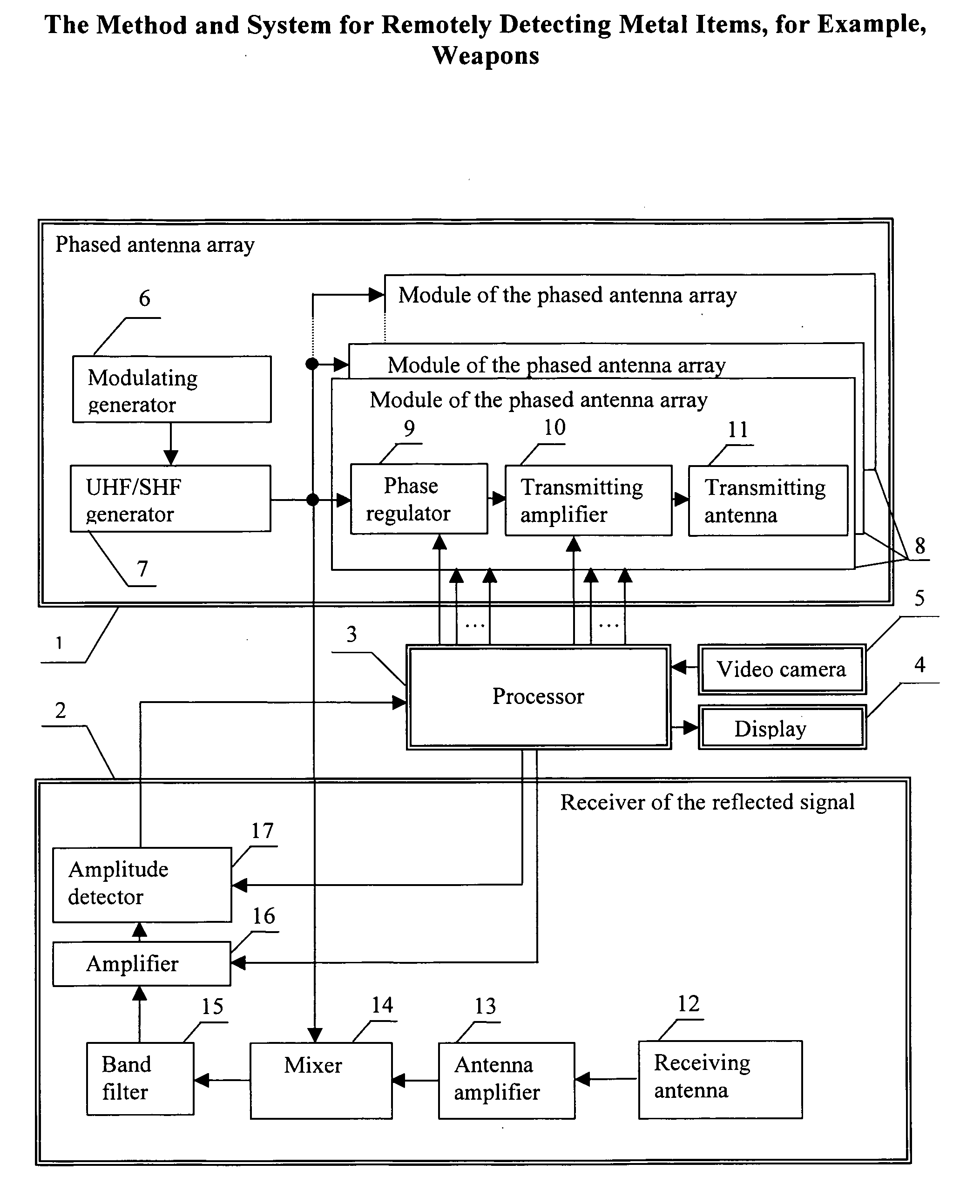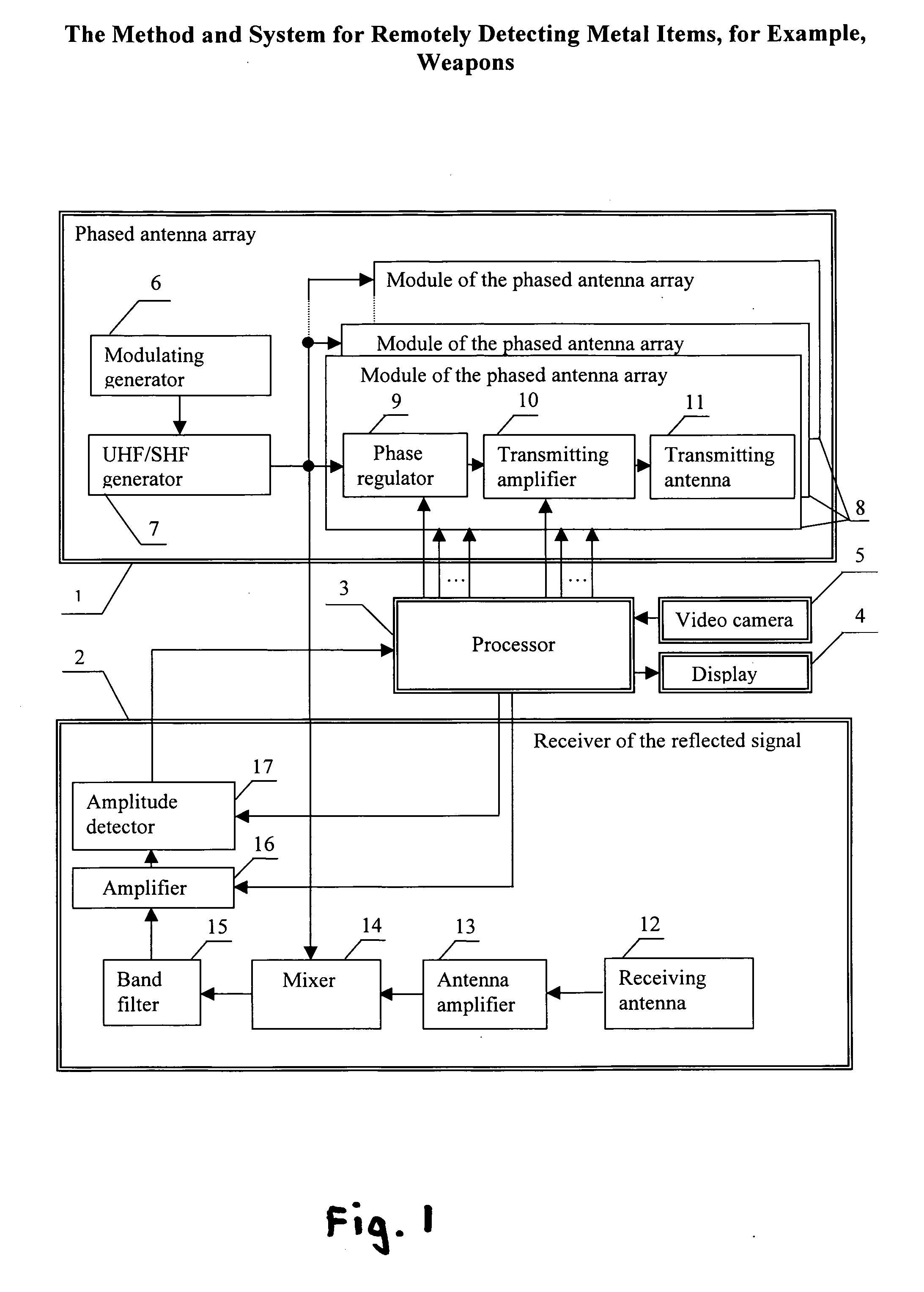Method and system for remotely detecting metal items, for example, weapons
- Summary
- Abstract
- Description
- Claims
- Application Information
AI Technical Summary
Benefits of technology
Problems solved by technology
Method used
Image
Examples
Embodiment Construction
[0045] Description of the Proposed System
[0046] The present invention (the method and the system) may be implemented using the system whose functional flowchart is shown in the FIGURE.
[0047] The proposed system contains a phased antenna array 1 radiating a continuous frequency-modulated super high or ultra high frequency signal, a receiver of reflected signals 2, a processor 3, a display 4, and a video camera 5.
[0048] Ultra high frequency (UHF) is known to be characterized by the range of frequencies 300-3000 MHz and the super high frequency (SHF) by the range of frequencies 3-30 GHz (see, for example, the glossary of the Alliance for Telecommunications Industry Solutions, 2000, approved by the American National Standards Institute, http: / / www.atis.org / tg2k / t1g2k.html). The antenna array 1 radiates a signal belonging to the indicated UHF or SHF range.
[0049] The phased antenna array 1 contains a modulating generator 6, a UHF / SHF generator 7 whose input is connected to the output ...
PUM
 Login to View More
Login to View More Abstract
Description
Claims
Application Information
 Login to View More
Login to View More - R&D
- Intellectual Property
- Life Sciences
- Materials
- Tech Scout
- Unparalleled Data Quality
- Higher Quality Content
- 60% Fewer Hallucinations
Browse by: Latest US Patents, China's latest patents, Technical Efficacy Thesaurus, Application Domain, Technology Topic, Popular Technical Reports.
© 2025 PatSnap. All rights reserved.Legal|Privacy policy|Modern Slavery Act Transparency Statement|Sitemap|About US| Contact US: help@patsnap.com


